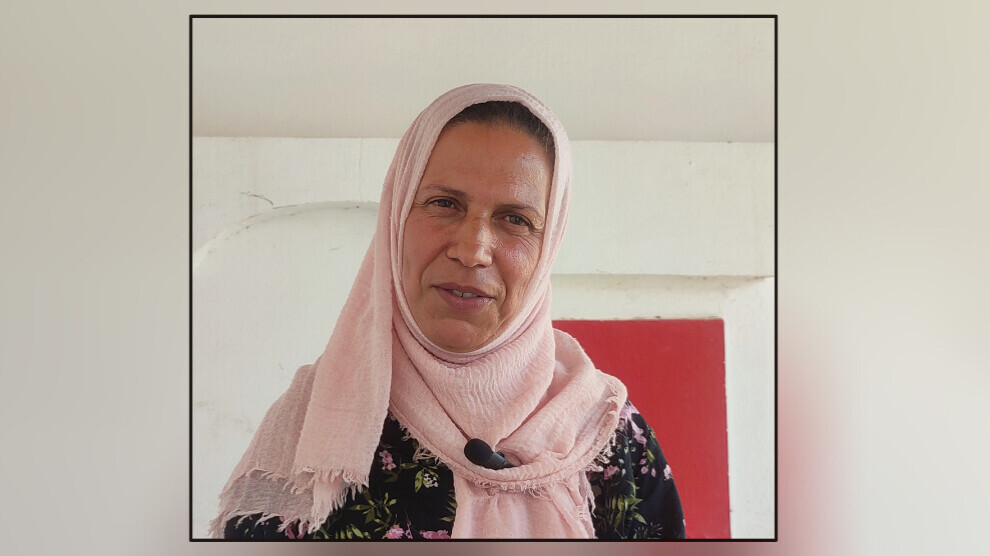Tunisian activist: Women’s liberation is possible with a collective struggle
Women living in rural areas of Tunisia are subjected to more violence, oppression and labor exploitation, says Hajar Al-Qasimi, a Tunisian activist in Sajanan, a town in Tunisia’s Bizerte Governorate.

ZOUHOUR MECHERGUI
Tunisia- In 2017, the Tunisian Parliament adopted Law 58, protecting women from violence against women. Women’s rights defenders think that the law only remains on paper and is not effectively implemented.
In an interview with NuJINHA, Hajar Al-Qasimi, a Tunisian activist and head of the branch of the National Union of Tunisian Women in Sajanan, a town in Tunisia’s Bizerte Governorate, expressed her concern about the impoverishment and exclusion of women in Tunisia. “Women face injustice because the law supposedly adopted to protect women is not effectively implemented.”
‘Women’s liberation is possible with a collective struggle’
The union defends women’s rights and provides support to liberate women and improve their situation, Hajar Al-Qasimi said. “The situation of women in Tunisia will remain bad as long as they climb mountains and work in difficult and tragic conditions in all seasons to earn a living and have a life with dignity. Women’s liberation is possible with a collective struggle.”
‘Women are subjected to violence and labor exploitation’
Recalling that the building of the union’s branch in Sajanan was looted during the Tunisian revolution, Hajar Al-Qasimi said, “We lost all the data. But we opened the office again to carry out activities for survivors of violence and make the voices of rural women again. Women, especially rural women, are subjected to violence and labor exploitation; however, they prefer to remain silent due to the patriarchal society.”
Hajar Al-Qasimi also talked about the challenges faced by women working in factories and agriculture. “They work for hours with a low wage. If they are lucky, they are paid five dollars a day because most female agricultural workers are paid less than five dollars a day. They work without social and health coverage and without contracts that guarantee them a retirement salary at a certain age.”
‘We are still hopeful’
Since the 1990s, the union has carried out activities in the town to support women, especially rural women. “We are still hopeful that the situation of women living in rural areas will improve. We will make their voices heard.”
